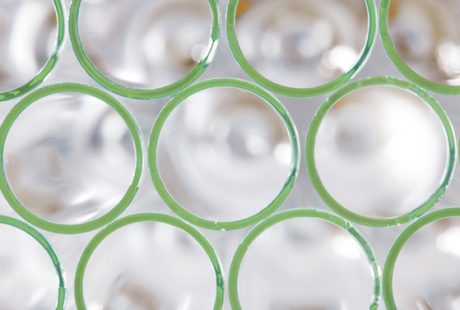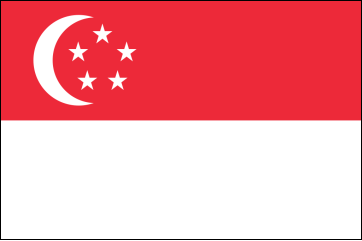We use cookies to personalize content and advertisements, to offer social media functions and to analyze access to our website.
You can revoke the given consent at any time. You can find further information in our Privacy Policy.
Nov 2016
Nov 2016
 In the Eurasian Economic Union (EEU), the final draft Technical Regulation on the “Restriction of the use of hazardous substances in electrical and electronic equipment” RoHS was published. The EEU is the former Customs Union (CU), an economic union of currently five countries of the former Soviet Union, among them e.g. Russia, Kazakhstan and Belarus.
The forecasted date of entry into force of the EEU Technical Regulation on RoHS is March 1, 2018. The current draft TR on RoHS follows in two relevant parts the EU RoHS Directive 2011/65/EU: It stipulates substance restrictions for Lead (0,1 %), Mercury (0,1 %), Cadmium (0,01 %), Hexavalent Chromium (0,1 %), Polybrominated biphenyls, PBB (0,1 %) and Polybrominated diphenyl ethers PBDE; (0,1 %) and foresees the same thresholds. The four phthalates DEHP, BBP, DBP and DIBP, which are restricted in the EU beginning with July 22, 2019, are not regulated by this Draft TR.
However, there are significant differences regarding product scope, definitions, exemptions from substance restrictions and labelling requirements. In addition, before placing a product in scope on the EEU market, a specific conformity assessment has to be conducted and registration is required.
For more information, please contact us at contact@1cc-consulting.com.
In the Eurasian Economic Union (EEU), the final draft Technical Regulation on the “Restriction of the use of hazardous substances in electrical and electronic equipment” RoHS was published. The EEU is the former Customs Union (CU), an economic union of currently five countries of the former Soviet Union, among them e.g. Russia, Kazakhstan and Belarus.
The forecasted date of entry into force of the EEU Technical Regulation on RoHS is March 1, 2018. The current draft TR on RoHS follows in two relevant parts the EU RoHS Directive 2011/65/EU: It stipulates substance restrictions for Lead (0,1 %), Mercury (0,1 %), Cadmium (0,01 %), Hexavalent Chromium (0,1 %), Polybrominated biphenyls, PBB (0,1 %) and Polybrominated diphenyl ethers PBDE; (0,1 %) and foresees the same thresholds. The four phthalates DEHP, BBP, DBP and DIBP, which are restricted in the EU beginning with July 22, 2019, are not regulated by this Draft TR.
However, there are significant differences regarding product scope, definitions, exemptions from substance restrictions and labelling requirements. In addition, before placing a product in scope on the EEU market, a specific conformity assessment has to be conducted and registration is required.
For more information, please contact us at contact@1cc-consulting.com.
Nov 2016
On 11, Nov 2016 | In News @en | By Alisa Maier
 The German Federal Ministry of Environment (BMUB) is currently working on a draft for a new Packaging Law, which will repeal the Packaging Ordinance. Besides some new definitions which are intended to clarify terms of the law and higher collection and recycling targets, the current draft foresees some major changes in how the system for packaging will be administered in future:
The draft contains the set-up of a central authority (similar to the function of stiftung ear, the German WEEE producer register). It will manage the newly demanded registration for packaging in Germany and will be in charge to administer a Declaration of Completeness.
Impact on producer obligations
With the numerous changes proposed, producers will have to face new requirements, such as registration in the public register for packaging with the new central authority and submission of an annual Declaration of Completeness – even producers who do not meet the current annual thresholds for such declaration will have this obligation in future. Furthermore, the pricing structure of recycling fees will change, as the draft foresees fees based on recyclability of packaging.
A final draft of the law is not expected before early 2017.
For more information, please contact us at contact@1cc-consulting.com.
The German Federal Ministry of Environment (BMUB) is currently working on a draft for a new Packaging Law, which will repeal the Packaging Ordinance. Besides some new definitions which are intended to clarify terms of the law and higher collection and recycling targets, the current draft foresees some major changes in how the system for packaging will be administered in future:
The draft contains the set-up of a central authority (similar to the function of stiftung ear, the German WEEE producer register). It will manage the newly demanded registration for packaging in Germany and will be in charge to administer a Declaration of Completeness.
Impact on producer obligations
With the numerous changes proposed, producers will have to face new requirements, such as registration in the public register for packaging with the new central authority and submission of an annual Declaration of Completeness – even producers who do not meet the current annual thresholds for such declaration will have this obligation in future. Furthermore, the pricing structure of recycling fees will change, as the draft foresees fees based on recyclability of packaging.
A final draft of the law is not expected before early 2017.
For more information, please contact us at contact@1cc-consulting.com.
Nov 2016
On 11, Nov 2016 | In News @en | By Alisa Maier
 The German Federal Ministry of Environment (BMUB) is currently working on a draft for a new Packaging Law, which will repeal the Packaging Ordinance. Besides some new definitions which are intended to clarify terms of the law and higher collection and recycling targets, the current draft foresees some major changes in how the system for packaging will be administered in future:
The draft contains the set-up of a central authority (similar to the function of stiftung ear, the German WEEE producer register). It will manage the newly demanded registration for packaging in Germany and will be in charge to administer a Declaration of Completeness.
Impact on producer obligations
With the numerous changes proposed, producers will have to face new requirements, such as registration in the public register for packaging with the new central authority and submission of an annual Declaration of Completeness – even producers who do not meet the current annual thresholds for such declaration will have this obligation in future. Furthermore, the pricing structure of recycling fees will change, as the draft foresees fees based on recyclability of packaging.
A final draft of the law is not expected before early 2017.
For more information, please contact us at contact@1cc-consulting.com.
The German Federal Ministry of Environment (BMUB) is currently working on a draft for a new Packaging Law, which will repeal the Packaging Ordinance. Besides some new definitions which are intended to clarify terms of the law and higher collection and recycling targets, the current draft foresees some major changes in how the system for packaging will be administered in future:
The draft contains the set-up of a central authority (similar to the function of stiftung ear, the German WEEE producer register). It will manage the newly demanded registration for packaging in Germany and will be in charge to administer a Declaration of Completeness.
Impact on producer obligations
With the numerous changes proposed, producers will have to face new requirements, such as registration in the public register for packaging with the new central authority and submission of an annual Declaration of Completeness – even producers who do not meet the current annual thresholds for such declaration will have this obligation in future. Furthermore, the pricing structure of recycling fees will change, as the draft foresees fees based on recyclability of packaging.
A final draft of the law is not expected before early 2017.
For more information, please contact us at contact@1cc-consulting.com.
Sep 2016
Aug 2016
Jun 2016
 On June 1, 2016, Singapore has published an Order amending the Second Schedule of the Environmental Protection and Management Act.
Coming into force one year later, on June 1, 2017, certain so called „controlled EEE (Electrical and electronic equipment)“ has to comply with the well-known RoHS substance restrictions in homogeneous material by weight:
Lead: 0,1 %
Cadmium: 0,01 %
Mercury: 0,1%
Hexavalent Chromium: 0,1%
Polybrominated Biphenyls: 0,1%
Polybrominated Diphenylether: 0,1%
Restrictions are limited to certain products as specified in the Act, e.g. Air conditioners, Televisions, mobile phones, portable computers or washing machines, etc. Several exemptions, following the wording in Annex III of EU RoHS Directive 2011/65/EU, are also applicable.
Restrictions apply for manufacture, import, sale or offer for sale but are not applicable for second hand-products.
Singapore is just one of several countries now adopting restrictions similar to EU ROHS Directive 2011/65/EU in order to restrict certain dangerous substances in EEE.
Need more information on RoHS worldwide? Contact us!
On June 1, 2016, Singapore has published an Order amending the Second Schedule of the Environmental Protection and Management Act.
Coming into force one year later, on June 1, 2017, certain so called „controlled EEE (Electrical and electronic equipment)“ has to comply with the well-known RoHS substance restrictions in homogeneous material by weight:
Lead: 0,1 %
Cadmium: 0,01 %
Mercury: 0,1%
Hexavalent Chromium: 0,1%
Polybrominated Biphenyls: 0,1%
Polybrominated Diphenylether: 0,1%
Restrictions are limited to certain products as specified in the Act, e.g. Air conditioners, Televisions, mobile phones, portable computers or washing machines, etc. Several exemptions, following the wording in Annex III of EU RoHS Directive 2011/65/EU, are also applicable.
Restrictions apply for manufacture, import, sale or offer for sale but are not applicable for second hand-products.
Singapore is just one of several countries now adopting restrictions similar to EU ROHS Directive 2011/65/EU in order to restrict certain dangerous substances in EEE.
Need more information on RoHS worldwide? Contact us!
Jun 2016
On 17, Jun 2016 | In News @en | By Alisa Maier
Holzgerlingen, June 16 2016
1cc GmbH as one of the leading providers of full-range consulting services for waste and product related environmental compliance, seeks a Country Research Specialist to be based in Irving/Texas or Washington/District of Columbia.
Position Summary This position is responsible for conducting research on legislative changes related to waste management, producer responsibility, restriction of hazardous substances and chemicals, energy efficiency, pollution control and related fields as well as copy right levies for electronic equipment occurring in the Americas region. This job can be based in Irving/Texas or Washington/District of Columbia. Candidates must be able to legally work in the United States.
Responsibilities • Ensuring up to date knowledge of legislative changes in assigned countries through a variety of sources, such as governmental websites and authorities; • Interpreting and documenting new and changed legislation for specific countries; • Work closely with project management to determine regulatory requirements; • Maintain processes required to deliver timely and accurate legislative and regulatory updates; • Be committed to a team-oriented work environment and high quality standards. Qualifications/skill • Strong problem solving and analytical skills; • Legal knowledge would be an advantage; • Ability to perform research using the internet and various data bases; • Proficient with Microsoft Office applications: Word, Excel, PowerPoint; • Must be able to prioritize and work independently; • Must be able to work in an accurate, timely and reliable manner; • Must be bi-lingual: English and either Spanish, Portuguese, Chinese, Korean or Japanese. Education and work experience • Bachelor’s Degree related to law, business administration or management, environmental science or engineering; • 2+ years of work experience in a related field; • Proven ability to research effectively from a computer through the internet. 1cc offer • Challenging scope of duties and involvement in various projects for international customers; • Professional, supportive and motivated team; • We value creativity, initiative and commitment! Please send your application to Johanna Terry (jobs@1cc-consulting.com).May 2016
On 30, May 2016 | In Copyright Levies, News @en | By Alisa Maier
 Copyright Levy Systems are gaining popularity: More and more countries worldwide are implementing these mechanisms in order to ensure adequate remuneration for right holders. This being true for several African countries, here some light is being shed on three countries which just activated or amended their copyright levy system by legislative revisions. The following shall give a brief overview of the characteristics.
Morocco: Exemption for private copying and payment obligations had already been introduced by mid-2014. Now, tariffs as well as reporting and payment regulations have been implemented by a Royal Decree on 17 March 2016. While manufacturers obligations arise when putting the product into circulation, importers are required to declare product information, quantity and origin before the product will be imported to Morocco. The entitled collecting society BMDA (Bureau Maroccain du droit d´auteur) authorized customs to collect copyright levies on their behalf. 1cc received stakeholder information that preparations are ongoing and personnel is being trained in order to enforce the legal provisions at customs.
Mauritius: Mauritius is about to revise thoroughly its Copyright Act of 2014. The law provides for a private copying exemption and requires to pay an “equitable remuneration” to authors. However, it leaves room for interpretation for the remuneration. In addition to many organizational issues, for example, with regard to the representation of authors, many questions should be clarified now by law-amendments. Copyright levies on blank media are expressly included in the considerations of a consultative body.
Ivory Coast: Already since 1996, the Copyright Act allows the private copy and requires manufacturers and importers to pay remuneration. Competent authority BURIDA (Bureau Ivoirien du Droit D’Auteur) is empowered “[…] To collect and distribute all rights to remuneration recognized by the Act […] in particular the remuneration for private copying, equitable remuneration, the remuneration for reprographic reproduction […]”
We will keep you updated on the further developments.
Copyright Levy Systems are gaining popularity: More and more countries worldwide are implementing these mechanisms in order to ensure adequate remuneration for right holders. This being true for several African countries, here some light is being shed on three countries which just activated or amended their copyright levy system by legislative revisions. The following shall give a brief overview of the characteristics.
Morocco: Exemption for private copying and payment obligations had already been introduced by mid-2014. Now, tariffs as well as reporting and payment regulations have been implemented by a Royal Decree on 17 March 2016. While manufacturers obligations arise when putting the product into circulation, importers are required to declare product information, quantity and origin before the product will be imported to Morocco. The entitled collecting society BMDA (Bureau Maroccain du droit d´auteur) authorized customs to collect copyright levies on their behalf. 1cc received stakeholder information that preparations are ongoing and personnel is being trained in order to enforce the legal provisions at customs.
Mauritius: Mauritius is about to revise thoroughly its Copyright Act of 2014. The law provides for a private copying exemption and requires to pay an “equitable remuneration” to authors. However, it leaves room for interpretation for the remuneration. In addition to many organizational issues, for example, with regard to the representation of authors, many questions should be clarified now by law-amendments. Copyright levies on blank media are expressly included in the considerations of a consultative body.
Ivory Coast: Already since 1996, the Copyright Act allows the private copy and requires manufacturers and importers to pay remuneration. Competent authority BURIDA (Bureau Ivoirien du Droit D’Auteur) is empowered “[…] To collect and distribute all rights to remuneration recognized by the Act […] in particular the remuneration for private copying, equitable remuneration, the remuneration for reprographic reproduction […]”
We will keep you updated on the further developments.
May 2016
On 11, May 2016 | In News @en | By Alisa Maier